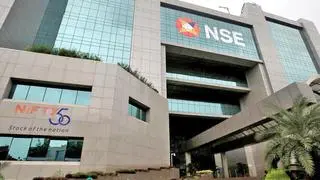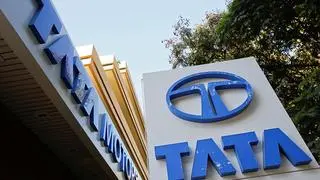BL Research Bureau
The reverse book-building process to delist the shares of Vedanta that kicked-off on Monday, has witnessed bids in a wide price range of ₹87.25 to ₹999 per share. The current market price of the company is ₹123.6 per share.
Our analysis based on the average historical price-to-book (P/B) ratio of the last few years - 1.15 times - indicate that the stock of Vedanta can be valued up to ₹220 per share.
For this analysis, we considered the P/B ratio of the company for each previous financial year from FY11 to FY19. The average of historical P/B ratio takes into account both upturns and the downturns in the cyclical industry that Vedanta is operating in.
Potential upside in price
Considering the book value of the company of ₹147 per share as of March 2020, the current P/B ratio of the company stands at just 0.83. At the delisting offer price of ₹87.5, Vedanta’s share is valued 0.6 times its book value of ₹147 per share.
The average historical P/B ratio of 1.15, indicates an upside potential to the share price of Vedanta.
A back-of-the-envelope calculation reveals that at a market price of about ₹170 per share, the stock of Vedanta will be close to its average historical valuation.
Impairment impacts book value
The book value of Vedanta at ₹147 per share as of March 2020 was derived after taking into account the charge of ₹17,386 crore towards impairment of assets, mainly Oil & Gas.
In the past six years, the firm has impaired assets twice and reversed the impairment loss once. In FY16, Vedanta impaired its assets, including Cairn India — which was acquired in 2011 — to the extent of ₹12,304 crore.
This was done after acquiring Cairn India but before its merger into Vedanta. Cairn India was merged into Vedanta in April 2017, and the shares of former were delisted.
In Q4FY18, Vedanta reversed an impairment losses of ₹7,016 crore (related to its oil and gas business) and made an exceptional gain.
Even in the current context, impairment loss is reversible if oil prices stabilise at a higher price.
If not for this impairment, the book value as on March 2020 would have been approximately around ₹190 per share.
If this unadjusted book value is considered, the company’s current valuation looks much lower. At the current market price and the offer price, the P/B ratio of Vedanta would be just 0.64 times and 0.46, respectively.
In this scenario, the market price should be much higher than ₹170 per share (as discussed earlier) to be in line with the average of historical P/B valuations. Given the book value per share of ₹190, to arrive at the average P/B valuation of 1.15, the price of the company should be valued about ₹220 per share.
Exit option
The exit price or the discovered price by the reverse book building process will be announced on or before October 16, 2020.
For the delisting to be successful, an eligible number of shares have to be tendered by the public shareholders such that promoter’s shareholding touches 90 per cent in the company, post-delisting. As on June 30, 2020, promoters held 50.14 per cent. If the eligible number of shares are not tendered to take the delisting through, the offer shall be deemed to have failed.
Out of the minimum requirement of 134.1 crore shares to be bid, only 10.54 crore shares were tendered as on the second day of the bidding period. Bidding ends on October 9, 2020.
Given the tepid response to the delisting, retail investors can adopt a wait and watch approach. You can wait until the last day to take cues about the price at which institutional investors have bid. Else, if the delisting does not go through now, future attempts may result in better price discovery. Besides, even if it goes through now, you can tender the shares at the discovered price within a year of delisting.








Comments
Comments have to be in English, and in full sentences. They cannot be abusive or personal. Please abide by our community guidelines for posting your comments.
We have migrated to a new commenting platform. If you are already a registered user of TheHindu Businessline and logged in, you may continue to engage with our articles. If you do not have an account please register and login to post comments. Users can access their older comments by logging into their accounts on Vuukle.